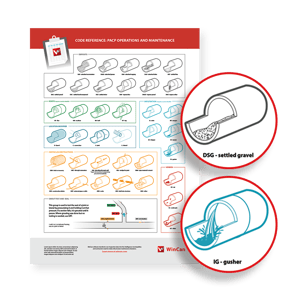Wastewater collection system managers know that poor maintenance and neglect can cause serious problems underground. But many don’t realize that excessive or overly aggressive cleaning can be nearly as bad. Excessive or aggressive cleaning can quickly wear down pipes and increase the rate at which the pipeline degrades, shortening its lifespan. Unnecessary cleanings also waste resources like water, fuel and crew time. To avoid this issue, system managers must have clear, accurate inspection data.
 Pipeline Assessment Certification Program (PACP) is a system for categorizing and understanding pipeline defects. Though it’s a complex taxonomy, the detail is what makes it so valuable for wastewater workers. PACP provides a framework for making qualitative pipe conditions quantifiable.
Pipeline Assessment Certification Program (PACP) is a system for categorizing and understanding pipeline defects. Though it’s a complex taxonomy, the detail is what makes it so valuable for wastewater workers. PACP provides a framework for making qualitative pipe conditions quantifiable.
In December 2018, WinCan released a PACP Code Reference: Structural Defects poster, which provides operators with a simple reference for PACP structural defect codes. Now, WinCan continues the series with a poster for Operation and Maintenance Defect codes. These defects describe “various types of foreign objects that are found in pipes and may interfere with the operation” of the collection system. Operation and maintenance defects quantify the cleaning needs of pipelines, allowing managers to understand the rate of accumulation for debris, roots and other blockages. This protects lines from sustaining excessive wear and utilizes department resources more effectively.
WinCan’s PACP Code Reference poster series provides clear, easy-to-understand illustrations of pipeline defects along with their corresponding codes, so that operators are creating consistent defect logs. Better data makes the job easier and ensures maintenance work is performed when it’s needed and avoided when it’s not. Request a copy of this free poster today.





